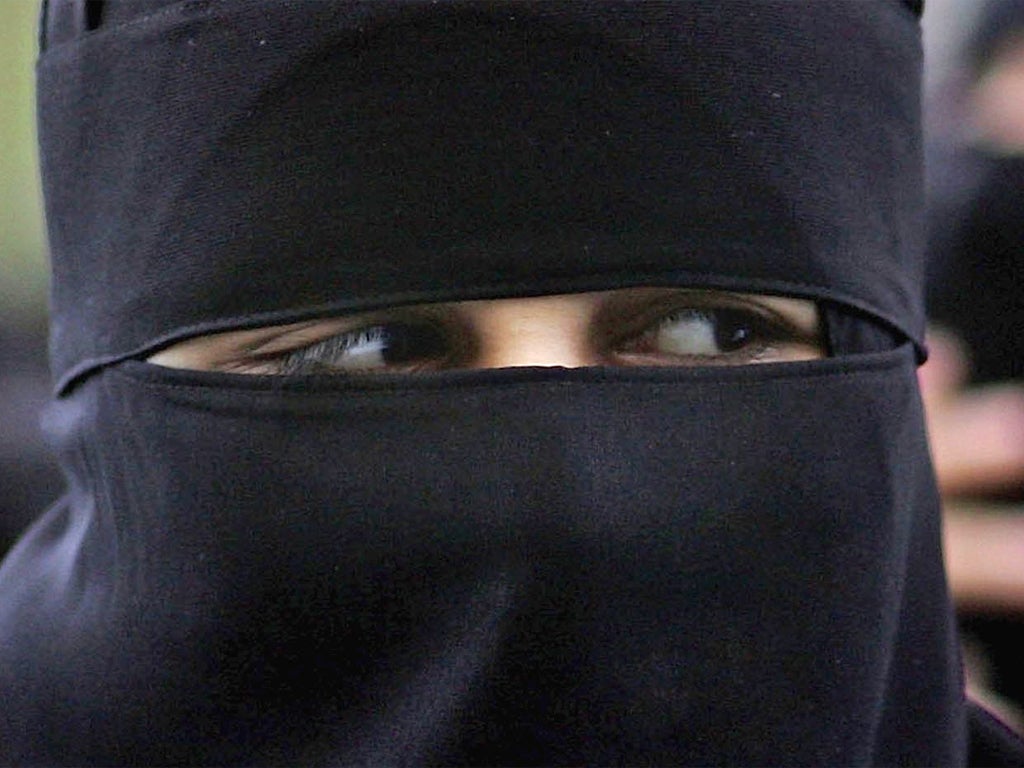This ban does not bode well for Britain's multicultural future
The ruling holds wider implications for the place of Muslims in British society

Your support helps us to tell the story
From reproductive rights to climate change to Big Tech, The Independent is on the ground when the story is developing. Whether it's investigating the financials of Elon Musk's pro-Trump PAC or producing our latest documentary, 'The A Word', which shines a light on the American women fighting for reproductive rights, we know how important it is to parse out the facts from the messaging.
At such a critical moment in US history, we need reporters on the ground. Your donation allows us to keep sending journalists to speak to both sides of the story.
The Independent is trusted by Americans across the entire political spectrum. And unlike many other quality news outlets, we choose not to lock Americans out of our reporting and analysis with paywalls. We believe quality journalism should be available to everyone, paid for by those who can afford it.
Your support makes all the difference.What to make of the ban given this week to wearing face veils while giving evidence in court?
Beyond the issue of this individual woman’s dignity and freedom to practice and express her religion, the ruling holds wider implications for the place of Muslims in British multicultural society.
Behind the ruling is a not-so-subtle message directly from the state apparatus to Britain’s Muslims: the apparent incompatibility between being a practicing Muslim and participating in British public life (despite the judge’s comments that this is not the case).
The pro-diversity social narrative in Britain is contravened by this ruling and other state policies that marginalize and exacerbate the differences between Muslims and wider society in a way that presents “British” and “Muslim” as dichotomous. As a country that claims to be a tolerant multicultural society that respects and embraces diversity, Britain cannot have it both ways.
This ruling has prompted elements within government to call it a key piece of jurisprudence that may segue into a full niqab ban in Britain, akin to that in France and other European nations. This would represent a major blow for Muslim minority rights. The state needs to take a clear position. Is this really a question of the integrity of the legal process or is its ultimate aim much larger?
The ruling infringes upon this woman’s right to carry out her religious belief and perform her civic duties in court. This is not to say that every Muslim woman wears a face veil. In fact, in the UK, Muslim women who wear the face veil are in the minority.
But there are some for whom wearing this piece of cloth is an intrinsic element of their ability to practice their faith. There are few women for whom this ruling about presenting evidence in a court of law will directly affect. However, the message that the ruling presents is clear, and its effects will run deep.
And for what? Must the quest for the truth, the whole truth, and nothing but the truth be at the expense of the inalienable right to freedom of religious expression? If the issue is one of identification, then it is perfectly possible for the courts to verify her identity in private, by a female officer of the court, as has been done in the past.
Security screenings in courts and other government buildings are conducted by gender-specific officers in order to maintain the dignity of entrants, and it is not an unreasonable extension to apply this to identity checks in the interest of preserving a woman’s dignity.
A piece of cloth roughly 6” x 12” does not impede the ability of the witness to provide truthful evidence under oath in the courtroom. We must ask ourselves whether this court ruling is really about due process of the law, or about Britain’s multicultural future.
Join our commenting forum
Join thought-provoking conversations, follow other Independent readers and see their replies
Comments